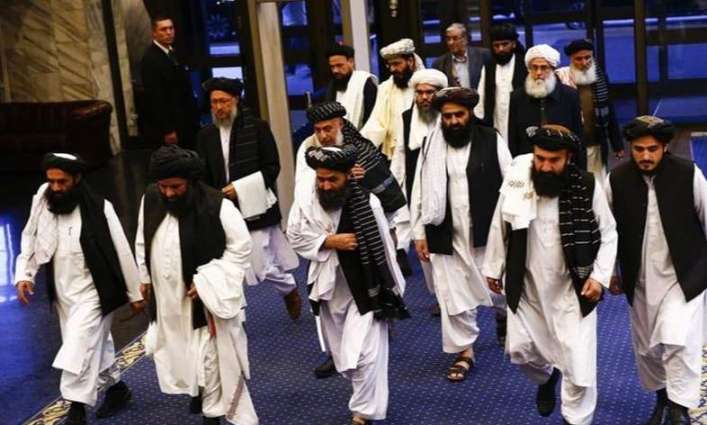As the Taliban (a terrorist group, outlawed in Russia) continue their rapid onslaught across Afghanistan toward near-total dominance, the movement is abandoning the possibility of compromise through negotiations in favor of seizing total control of the country, analysts told Sputnik
MOSCOW (Pakistan Point News / Sputnik - 11th August, 2021) As the Taliban (a terrorist group, outlawed in Russia) continue their rapid onslaught across Afghanistan toward near-total dominance, the movement is abandoning the possibility of compromise through negotiations in favor of seizing total control of the country, analysts told Sputnik.
At the moment, the Qatari capital of Doha is hosting the intra-Afghan talks, and a meeting of the extended troika (Russia, China, the United States and Pakistan) on Afghan resolution. This takes place as the Taliban have captured a significant chunk of the country's rural areas and several provincial capitals. The Kabul delegation told Al Jazeera that they are urging the international community to put pressure on the Taliban, as they have allegedly not been treating the negotiating process seriously. The delegation also wants a mediator to interact with the movement.
The situation has deteriorated so far that the United States, which is wrapping up its withdrawal from Afghanistan, worries that the militants could end up capturing Kabul within one to three months, according to The Washington Post.
This runs counter to some Russian assessments, with Russia's special presidential envoy for Afghanistan, Zamir Kabulov, mentioning in late July that it is highly unlikely that the Taliban will take full control of Afghanistan.
Earlier in the week, Taliban spokesman Zabihullah Mujahid told Sputnik that the movement rejected Washington's proposal to have an interim government and wanted what he described as "a fundamental solution."
According to Kanishkan Sathasivam, a professor in the Political Science department at Salem State University, Massachusetts, this reaction is in line with the Taliban's stated goal of controlling any future government.
"Even if they are to accept a government that is a coalition of sorts, their expectation is that they will have final say within that government. This is why they are rejecting an interim government, because in such a government they will be just one voice among many and not have deciding control," Sathasivam told Sputnik, adding the negotiations are unlikely to bear any fruit since the Taliban "are fundamentally (to use their own word) against any compromise."
This opinion is echoed by Anatol Lieven, a senior fellow at the Quincy Institute for Responsible Statecraft, who told Sputnik that he does not expect any significant talks between the Taliban and Kabul, but did not rule out a deal brokered by a third party between the militants and various ethnic groups.
"It is possible that Russia and other neighboring countries may help to arrange deals between the Taliban and some elements of the existing Afghan state (notably the Hazaras, the Panjshiris and some of the Uzbeks who are prepared to break with General [Abdul Rashid] Dostum [a prominent Uzbek military and political leader])," Lieven stated.
Amalendu Misra, a senior lecturer in the department of politics, philosophy and religion at Lancaster University, concurred, saying that "any 'fundamental solution' at this stage point towards complete Taliban takeover of Afghanistan and beginning of a new civil war."
While the prospects of successful intra-Afghan talks are becoming more and more unlikely against the backdrop of recent developments, and the possibility of the Taliban taking over becomes more real, the question remains if there is anyone capable of mounting an effective resistance.
"There will always be irritants to Taliban's complete control of Afghanistan. There will be multiple fronts that would be propped up by proxy powers in the region in the months to come. But given the ferocity of the Taliban's intentions any opposition to its rule would be swiftly countered," Misra thinks.
According to Sathasivam, the only way to prevent this scenario is for Russia, China, India, Turkey, Iran and Pakistan to lend their support to the non-Taliban factions.
"These countries have been full of empty talk in past years, claiming to want to help stabilize Afghanistan," the expert said, adding that as the US and NATO are leaving the country, it is time for those countries to boost their financial aid to Afghans.
Whether or not they will do so, only time will tell, but even with their involvement, the Taliban is unlikely to just wither away since, as Lieven put it, "given the progress of the Taliban on the ground, it seems overwhelmingly probable that they will be the dominant force in Afghanistan in future."




